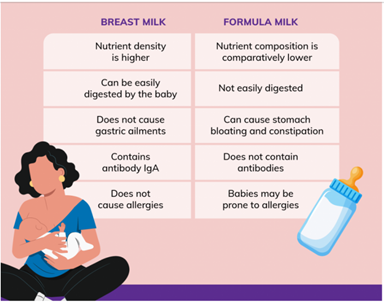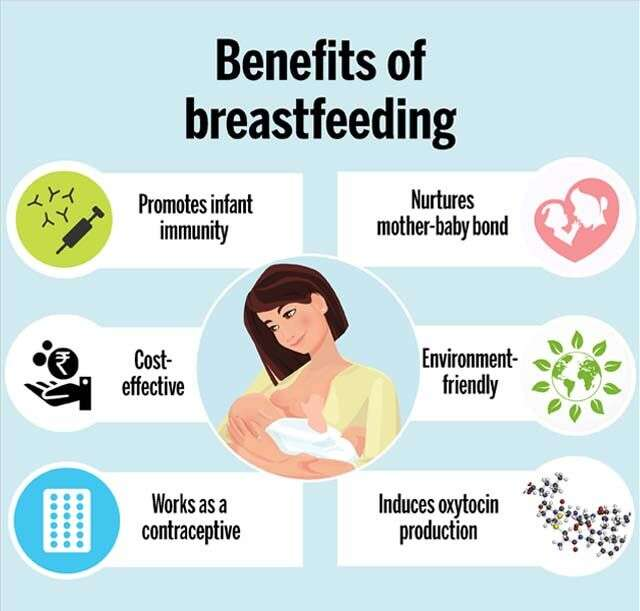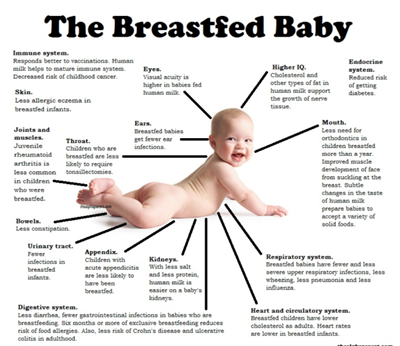Description

Copyright infringement not intended
Context - The WHO Study highlighted that Digital marketing companies are influencing pregnant women and mothers on social media to feed their babies with Breast-milk Substitutes products.
Details
- According to the World Health Organisation (WHO) study “Digital marketing companies are targeting pregnant women and mothers on social media to influence them to feed their babies with their products as the substitute of Breast milk”.
- Breast-milk substitute companies are using apps, baby clubs, advice services and online registrations to collect personal information and send personalised breast-milk substitute promotions to mothers.
- The Global milk industries, valued at around $55 billion, are also evading the International Code of Marketing of Breast-milk Substitutes adopted by the World Health Organisation (WHO) in 1981.
- The International Code of Marketing of Breast-milk Substitutes aimed at regulating the advertisement of the products to ensure the health of the baby and mother are maintained by avoiding negative influence on breastfeeding practices.
- The Study highlighted that “Currently, only 19 % of Countries have laws that strictly prohibit promoting Breast Milk Substitute on the internet, social media, or other digital platforms”.
- The WHO Study shows “exclusive and continued breastfeeding has a positive impact on the baby’s long-term health, but Still, not enough children are being breastfed.
- According to the WHO, only 44 % of children under 6 months of age are exclusively breastfed.
- While 56 % stop breastfeeding before they turn 2 months old.
- The WHO officials stated that “These milk companies are employing powerful and targeted marketing techniques to increase their sales is unjustifiable and they must be stopped.”

Copyright infringement not intended
Benefits for the baby
- Early skin-to-skin contact keeps the baby warm.
- Helps mother and baby to develop a close and loving relationship.
- It is the best source of nutrition for babies.
- It protects babies against some short and long-term illnesses and diseases.
- Breastfed babies have a lower risk of asthma, obesity, diabetes, and sudden infant death syndrome (SIDS).
- Breastfed babies are also less likely to have body and stomach infections.
- It allows the mother to share their antibodies with her baby. These antibodies provide a strong immune system and protect babies from illnesses.
- These antibodies help the baby to fight off viruses and bacteria.
- Breastfeeding promotes healthy weight gain and helps prevent childhood obesity.
- Many studies have suggested that there may be a difference in brain development between breastfed and formula-fed babies.
- This may be due to the physical closeness, touch, and eye contact associated with breastfeeding as well as nutrient content.

Copyright infringement not intended
Benefits for the mother
- Reduce the risk of excessive bleeding after delivery.
- Promotes postpartum weight loss.
- Costs less to feed the child.
- Mothers can feed their babies anytime and anywhere without worrying about having to mix formula or prepare bottles.
- Breastfeeding can reduce the mother’s risk of breast and ovarian cancer, type 2 diabetes, and high blood pressure.
- Some types of cancers, diabetes and high blood pressure are less common among women who breastfeed their babies.
- Studies have also shown that mothers who breastfeed generally have less blood loss after delivery and faster recovery of the uterus.
- Women who breastfeed seem less likely to develop postpartum depression, compared to mothers who wean early or do not breastfeed.
MAA Programme
- The Government of India launched the ‘MAA’ (Mothers’ Absolute Affection) Programme in 2016, to support the efforts towards promotion, protection and support of breastfeeding practices through health systems to achieve higher breastfeeding rates.
- It is a nationwide programme of the Ministry of Health and Family Welfare.
- The objectives of the MAA Programme;
- Build a positive environment for breastfeeding through awareness generation activities, targeting pregnant and lactating mothers, family members and society to promote optimal breastfeeding practices.
- Strengthen lactation support services at public health facilities through trained healthcare providers and skilled community health workers.
Way Forward
- Breast milk alone is the best food and drink for an infant for the first 6 months of life. No other food or drink, not even water, is usually needed during this period.
- Breastfeeding is important for child survival. Breastfeeding within an hour of birth could prevent 20% of newborn deaths.
- Infants who are not breastfed are 15 times more likely to die from pneumonia and 11 times more likely to die from diarrhoea than children who are exclusively breastfed, which are two leading causes of death in children under five years of age.
- In India, nearly 65% of babies are exclusively breastfed during the first 6 months.
- Breastfeeding helps in the reduction of neonatal mortality and infant mortality; therefore we need to promote breastfeeding practices.
- Promotion, protection and support of breastfeeding must become an important activity of the health systems.
https://www.downtoearth.org.in/news/health/breast-milk-substitute-makers-insidiously-targeting-pregnant-women-mothers-on-social-media-who-82628
















